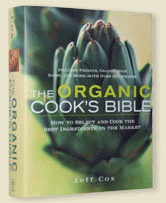The Real Value of Nature
Organic Lifestyle Comments Off on The Real Value of Nature
The value of nature worldwide—that is, the services provided by ecosystems—equals $147.7 trillion per year—greater than all the GNPs of all the world’s countries put together.
But the real value is not in money, but in HEALTH. What nature’s functioning ecosystems produce is health. And would you rather have a million dollars and be in chemo, or have a pocket full of change and glowing good health?
***
ALL WHO WANT MORE GMOS THAT CAN WITHSTAND HEAVY APPLICATIONS OF HERBICIDES RAISE YOUR HAND. WHY IS THE USDA’S HAND UP?
The U.S. Department of Agriculture’s (USDA) Animal and Plant Health Inspection Service (APHIS) is issuing a final and a draft environmental impact statement (EIS) on several genetically engineered (GE) products as part of its review to determine whether to deregulate them. APHIS is issuing a final EIS as part of its review to determine whether to deregulate GE corn and soybean plants that are resistant to several herbicides, including one known as 2,4-D. APHIS also announced it will issue a draft EIS for public comment in the coming days as part of its review to determine whether to deregulate GE cotton and soybean plants that are resistant to multiple herbicides, including dicamba.
***
GUT BACTERIA EXCEL AT DISMANTLING YEAST CELL WALLS
Bacteria that have evolved to help us digest the yeast that give beer and bread their bubbles could support the development of new treatments to help people fight off yeast infections and autoimmune diseases such as Crohn’s disease, researchers report.
The study shows how microbes in our digestive tract have learned to unravel the difficult to break down complex carbohydrates that make up the yeast cell wall. It’s published by scientists from Newcastle University in the United Kingdom and the University of Michigan Medical School.
Evolving over the 7,000 years that we have been eating fermented food and drink, the ability of a common gut bacterium called Bacteroides thetaiotomicron to degrade yeasts is almost exclusively found in the human gut.
Publishing their findings in the Jan. 8 issue of Nature, the international research team says the discovery of this process could accelerate the development of prebiotic medicines to help people suffering from bowel problems and autoimmune diseases.
The new findings provide a better understanding of how our unique intestinal soup of bacteria has the capacity to obtain nutrients from our highly varied diet.
Their findings suggest yeast has health benefits possibly by increasing the Bacteroides growth in the microbiome.
Involving an international team of scientists from the United Kingdom, Australia, Canada, United States and Belgium, the research has unraveled the mechanism by which B. thetaiotaomicron has learned to feast upon difficult to break down complex carbohydrates called yeast mannans.
Mannans, derived from the yeast cell wall, are a component in our diet from fermented foods including bread, beer, wine and soy sauce, as well as yeasts that call the human gut home and are in some cases thought to be harmful.
***
GMOS ARE CRIMES AGAINST NATURE
The following report is from the Organic Consumers Association and was written by International Director Ronnie Cummins.
“Monsanto should not have to vouchsafe the safety of biotech food,” said Phil Angell, Monsanto’s director of corporate communications. “Our interest is in selling as much of it as possible. Assuring its safety is the FDA’s job.” — New York Times, Oct. 25, 1998
The technology of agricultural genetic engineering (GE) is the controversial practice of gene-splicing and disrupting the genetic blueprints of plants and trees in a lab, to produce patented seeds. The seeds are generally one of two types. One type, which includes Monsanto’s Roundup-resistant crops, produces plants that survive the spraying of poisons, while all the other plants around them die. The other type produces a plant that manufactures its own pest-killing poison, designed to target a specific pest.
Contrary to what some in the biotech industry and the media claim, genetic engineering of plants is not the same thing as selective breeding, or hybridization. Genetic modification involves inserting foreign genetic material (DNA) into an organism. Selective breeding does not.
For two decades, Monsanto and its cohorts (Syngenta, Dow, DuPont, Bayer, and BASF) have been randomly inserting the genes of one species into a non-related species, or genetically “interfering” with the instructions of an organism’s RNA—utilizing viruses, antibiotic-resistant genes and bacteria as vectors, markers and promoters—to create gene-spliced seeds and crops. Through clever marketing, they’ve captured the loyalty of North America’s (and many other nations’) chemical-intensive farmers, grain traders and Junk Food corporations. Fortunately, in the 28 member states of the European Union, where GMOs must be labeled and independently safety-tested, there are little or no GMO crops planted, and few GMO foods or food ingredients on supermarket shelves or restaurant menus.
Although Monsanto, industry scientists and corporate agribusiness claim that GMO crops and foods, and the chemicals that accompany them, are perfectly safe and therefore need no labeling or independent safety-testing, hundreds of independent scientists, that is, those not on the payroll of Monsanto or its minions, cite literally hundreds of studies showing that GMOs and their companion chemicals, such as Roundup, are extremely toxic.
Self-appointed GMO (Genetically Modified Organism) labeling “leaders” such as Scott Faber of the Just Label It campaign (a former lobbyist for the pro-GMO Grocery Manufacturers Association) need to stop repeating Monsanto and Big Food’s lies that there is no “evidence” that GMOs are dangerous for human health or the environment. As Faber stated at a Congressional Hearing on December 10, 2014:
“We do not oppose… genetically modified food ingredients. We think there are many promising applications of genetically modified food ingredients… I am optimistic that the promises that were made by the providers of this technology will ultimately be realized…that we will have traits that produce more nutritious food that will see significant yield…”
Given the current barrage of pro-GMO propaganda in the mass media, “GMO-Free” proponents need to put far greater emphasis on the fact that it isn’t just the imprecise and unpredictable nature of gene-splicing itself—a process that produces toxins and allergens, and shuts down essential gene functions—that threatens human health and the environment. The billions of pounds of systemic toxic pesticides (herbicides, insecticides, and fungicides), especially Roundup, that are used on GMO and so-called conventional crops, are equally, if not more, hazardous to human health and the environment.
These systemic agro-toxins, for the most part, cannot be washed off before eating. These biocides end up on our dinner plates and in our drinking water. They lodge in our bodies and in the bodies of our children, slowly but surely degrading our health and killing us. The world needs a food and farming system that is organic, climate-friendly and regenerative, one that is free of pesticides, animal drugs and chemical fertilizers—not one that is merely GMO-free.
A 12-point agenda for driving GMOs off the market
The anti-GMO and organic Movement has come a long way in the past two decades. But given the dangers posed by GMOs and Roundup, it’s time to move aggressively forward. Here are a dozen crucial steps we need to take in 2015 to drive GMOs and Roundup off the market.
1. Stop Congress from passing the Pompeo bill (HR #4432) in 2015, which would take away states rights to pass mandatory GMO food labeling bills, and make it legal for unscrupulous food and beverage companies to continue mislabeling GMO-tainted foods as “natural” or “all natural.”
2. Stop Congress from “fast-tracking” and passing secretly negotiated “Free Trade” agreements (the TPP-Trans-Pacific Partnership, and TTIP-Transatlantic Trade and Investment Partnership) that would weaken consumer and states rights to label and safety test GMO and factory-farmed foods.
3. Pass more state laws requiring mandatory labels on GMOs.
4. Pass more bans on GMOs, neonicotinoids and pesticides at the township, city, and county levels.
5. Support Vermont, Maui (Hawaii), Jackson and Josephine counties (Oregon) in their federal and state legal battles to uphold their laws requiring labels and/or bans on GMOs.
6. Educate the public on the dangers and cruelty of GMO-fed, factory-farmed meat, dairy and egg products, and organize a “Great Boycott” of all factory-farmed foods.
7. Support mandatory state legislation to label dairy products and chain restaurant food coming from factory farms or CAFOs (Confined Animal Feeding Operations).
8. Pressure retail natural food stores and coops to follow the lead of Whole Foods Market and the Natural Grocer to label and/or ban all GMO-derived foods, including meat and animal products and deli foods, from their stores.
9. Pressure restaurants to follow the lead of organic/grass fed restaurants and ban, or at least label, all GMO ingredients.
10. Support consumer efforts to test for Roundup/glyphosate contamination in drinking water, human urine, breast milk, and in non-GMO food products such as wheat, potatoes, oats, peas, lentils and dry beans that are currently sprayed with Roundup before harvest.
11. Educate the public on the positive health, environmental, ethical and climate-friendly (greenhouse gas sequestering) attributes of organic, grass-fed, and pasture-raised food and farming.
12. Boycott the “Traitor Brand” products of the Grocery Manufacturers Association, International Dairy Foods Association, and the Snack Food Association.
###












